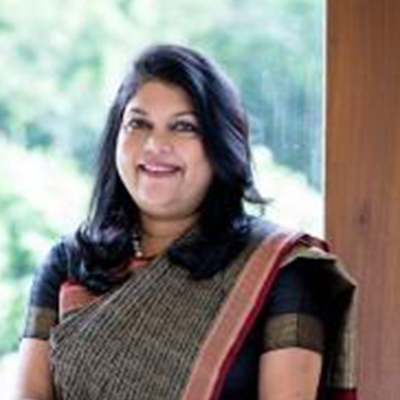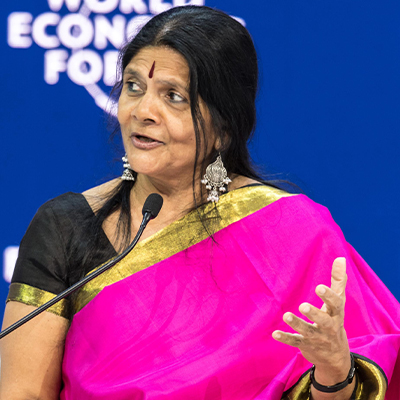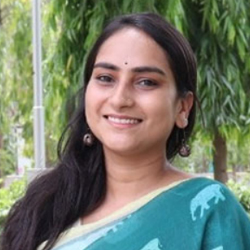‘India is a fertile ground for entrepreneurs, given its large pool of world-class talent and resources.’
— Kiran Mazumdar-Shaw, Chairperson & Managing Director, Biocon
India’s story of growth and transformation is increasingly being written through the lens of entrepreneurship. Yet, within this larger narrative, a quieter revolution is unfolding — one led by women. Across boardrooms, small towns, and social enterprises, women entrepreneurs in India are steadily redefining what progress looks like.
According to the Sixth Economic Census, women-owned and women-run establishments account for about 13.76% of all enterprises in India, employing roughly 10.24% of the total workforce. While only around 14% of women in India own or run businesses, the momentum is undeniable. As of 2024, government data reveals that 73,151 startups with at least one woman director have been recognised under the Startup India Initiative, a strong testament to women’s growing role in shaping India’s entrepreneurial landscape.
Women are not merely entering the business world; they are transforming it — infusing it with empathy, resilience, and innovation. Many women-led enterprises , though concentrated in the micro and informal sectors (over 80% are micro units), are driving employment and pioneering new models of impact. They are redefining how we think about enterprise, equity, and leadership, proving that inclusive growth is not just an aspiration, but India’s most promising reality in the making.
The New Face of Entrepreneurship
Entrepreneurship has long been synonymous with risk-taking and disruption. Today, women are expanding that definition, transforming it into a story of purpose, perseverance, and people-centric progress.
‘When women rise, families flourish and communities transform. It’s not just about empowerment — it’s about nation-building.’
— Falguni Nayar, Founder & CEO, Nykaa
Across India’s social sector, women-led enterprises are reimagining what impact looks like; starting not from ambition, but from a deep sense of purpose. Leaders like Chetna Sinha of the Mann Deshi Foundation are empowering rural women through access to finance and entrepreneurship training. As Chetna says, ‘28 years back, when we wanted to start the Mahila bank, everyone said “NO”: families said “NO”, the market said “NO”, regulators said “NO”. We had “NO” from everywhere. But despite this, these small rural women vendors didn’t keep quiet. It was a long journey of hardship, and today I proudly celebrate earning my license and being able to pay dividends to thousands of women who are part of this bank. This year, we have reached 1 million women entrepreneurs, employed another 2 million women, mostly from the informal sector, and achieved a total business size of 450 crores. What’s next? We are now getting ready to join the digital commerce revolution, with our platform ready to connect artisans and vendors. This is a journey that will change the course of our next decade, and I am very hopeful.’
What Sinha emphasises is that when she asks women, ‘Everyone tells you no, what makes you grounded?’ Their answer is not capital or credit, but courage.
The role of women entrepreneurs in India extends far beyond creating wealth. It’s about creating systems that work for everyone, from women-led start-ups in fintech and healthtech to micro-enterprises in rural India. These ventures generate jobs, enhance livelihoods, and strengthen local economies.
This is the significance of women’s entrepreneurship. It multiplies impact, weaving economic progress with social change.
The Broader Role: From Enterprise to Ecosystem
The significance of women entrepreneurship today extends beyond business metrics; it is a catalyst for systemic change. Women are not only building enterprises but are also laying the foundation for inclusive ecosystems like mentoring, investing, and leading policy dialogues. Initiatives like the Women Entrepreneurship Platform under NITI Aayog have been instrumental in fostering this transformation, creating a collaborative network of women leaders across sectors.
A compelling example of this ecosystem-building is Eco Femme, a women-led social enterprise based in Tamil Nadu. Founded in 2009, Eco Femme produces organic, washable cloth pads, offering a sustainable alternative to disposable sanitary products. Beyond manufacturing, Eco Femme empowers women by providing menstrual health education and vocational training in rural communities. Their ‘Pad for Pad’ initiative ensures that for every pad sold, one is donated to an adolescent girl in need, promoting menstrual hygiene and education.
As Richa Kar, co-founder of Zivame, aptly states:
‘For every woman who dares to start, she builds a bridge for others to cross.’
Indeed, ventures like Eco Femme exemplify how women-led enterprises can transcend traditional business models to become powerful agents of social and environmental change. They are not just creating wealth; they are crafting pathways for others to follow, thereby amplifying their impact and contributing to a more equitable society.
The Road Ahead: Leadership and Legacy
As we look toward the future, the role of women entrepreneurship in India becomes central to the nation’s growth narrative. Women entrepreneurs are redefining leadership not as command and control, but as connection and collaboration.
Conversations like those at the upcoming India Women’s Leadership Conference (IWLC) 2025 by India Leaders for Social Sector (ILSS) are vital in sustaining this momentum. The conference aims to amplify women’s voices, celebrate their achievements, and build a strong leadership ecosystem that aligns with India’s social and economic aspirations.
By fostering dialogue between women entrepreneurs, policymakers, and ecosystem enablers, IWLC 2025 recognises that what research already shows is that empowering women entrepreneurs is not just good economics; it’s good nation-building.
Register now : India Women’s Leadership Conference 2025
Conclusion
The rventures. It’s about challenging barriers, inspiring communities, and creating opportunities where none existed.
As India strives toward inclusive and sustainable growth, women entrepreneurs hold the key to unlocking its full potential. Their stories, rooted in courage, creativity, and conviction, remind us that when women lead, nations rise.
References
- Women Entrepreneurship in India”, AVPN.
- “The rise of women in entrepreneurial roles in India”, Economic Times.
- “Role of Women Entrepreneurship in the Economic Development of India”, Yogita (2022).
- “Research on India Suggests Women Are a Key to Fast Economic Growth”, We-Fi Secretariat.
- “Decoding Government Support to Women Entrepreneurs in India”, NITI Aayog.
- “15 Best Female Entrepreneur Podcasts India Edition 2025”, FeedSpot.
- “India Women’s Leadership Conference 2025 – India Leaders for Social Sector”.
- Future. Female. Forward | Mann Deshi Bank’s Chetna Sinha On Helping Women Entrepreneurs
About the Authors
Simran Gupta is a Senior Program Manager at ILSS, bringing rich experience across research, teaching, program management, and business development in the social and corporate sectors. Before joining ILSS, she held key roles at Masters’ Union, the Tata Institute of Social Sciences (TISS), and the Indian Institute for Human Settlements (IIHS). She has contributed to building impactful academic and institutional initiatives through her strategic and cross-sectoral expertise. Simran holds an M.Phil. in Development Studies from TISS and an M.Sc. in Economics (Development Studies) from the Symbiosis School of Economics.
Dr Shradha Roy has a decade of experience spanning R&D, technology development, and social impact. With expertise in program management, leadership, and strategic decision-making, she has successfully driven results in high-pressure, fast-paced environments, collaborating with different stakeholder including government agencies, corporates, nonprofits, and global organisations. She was awarded the MEXT Fellowship by the Government of Japan for her PhD, nominated by MHRD, Government of India. An alum of the University of Tokyo, she holds a doctorate in Plant Molecular Genetics. Passionate and dynamic, she enjoys music and cross-cultural interactions.











